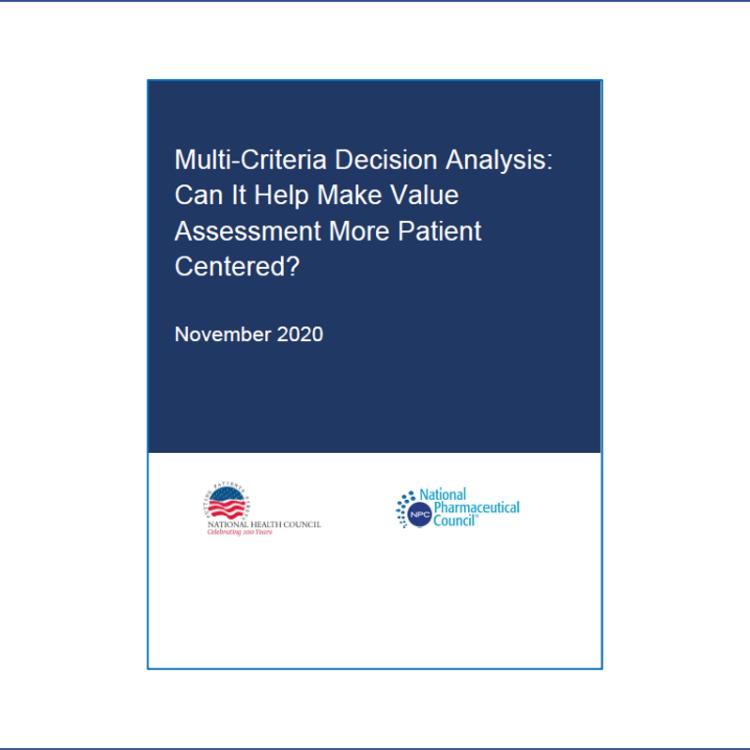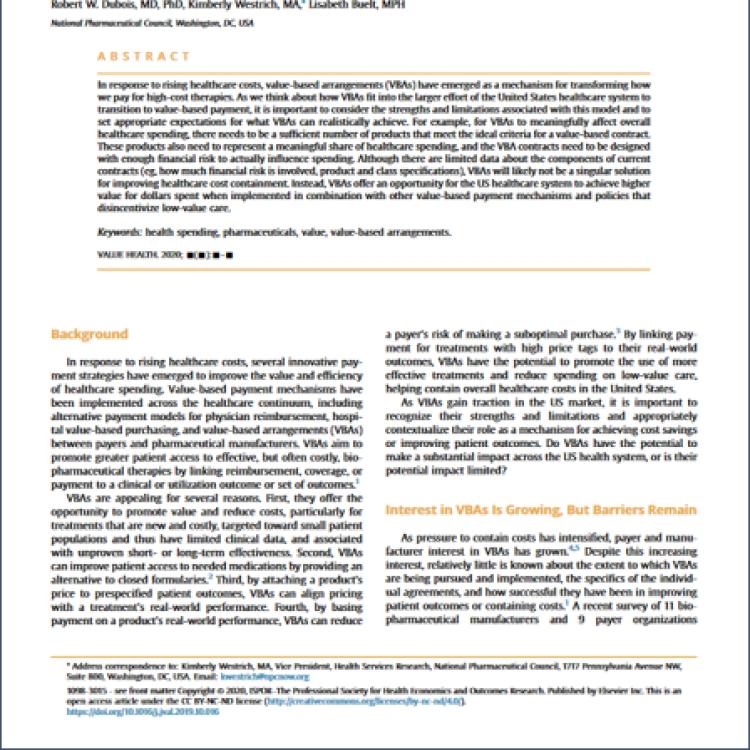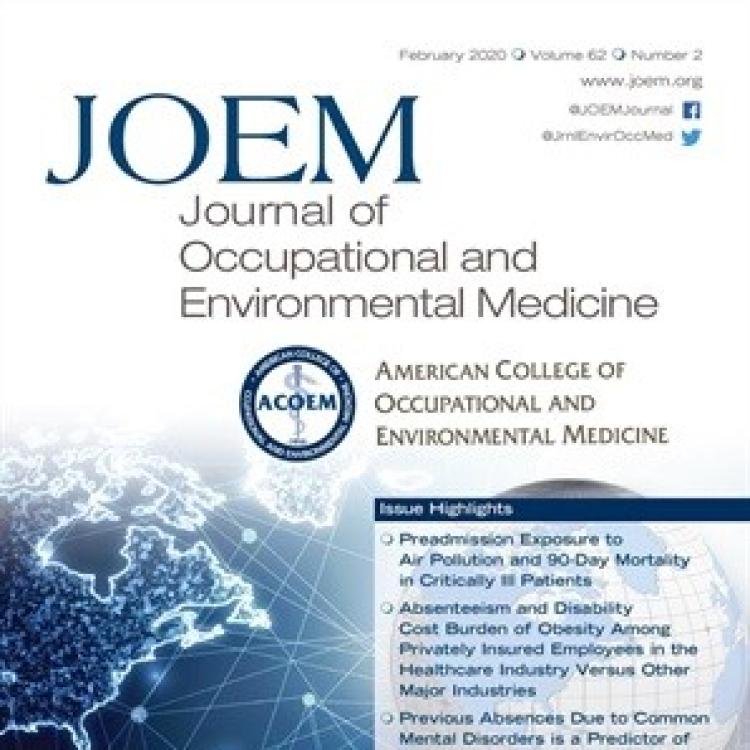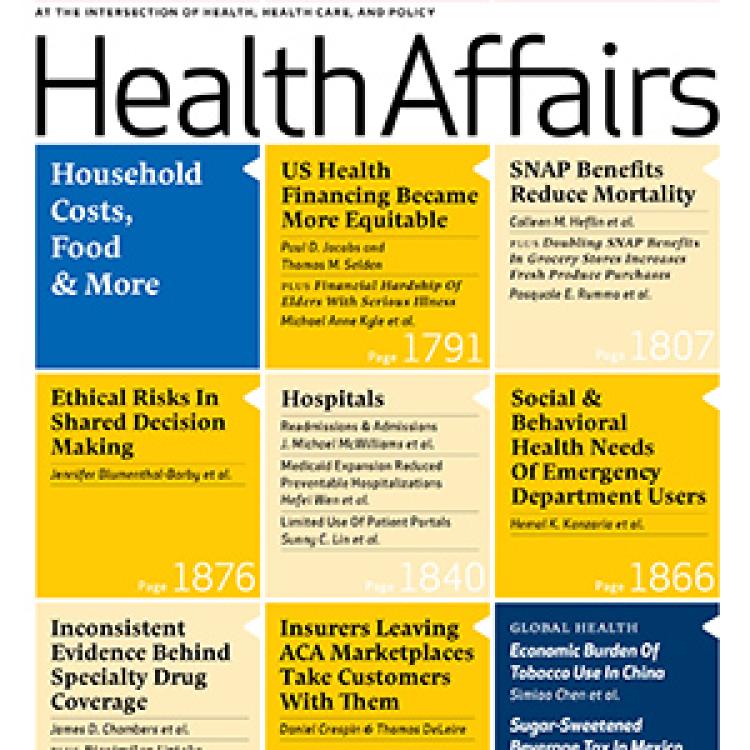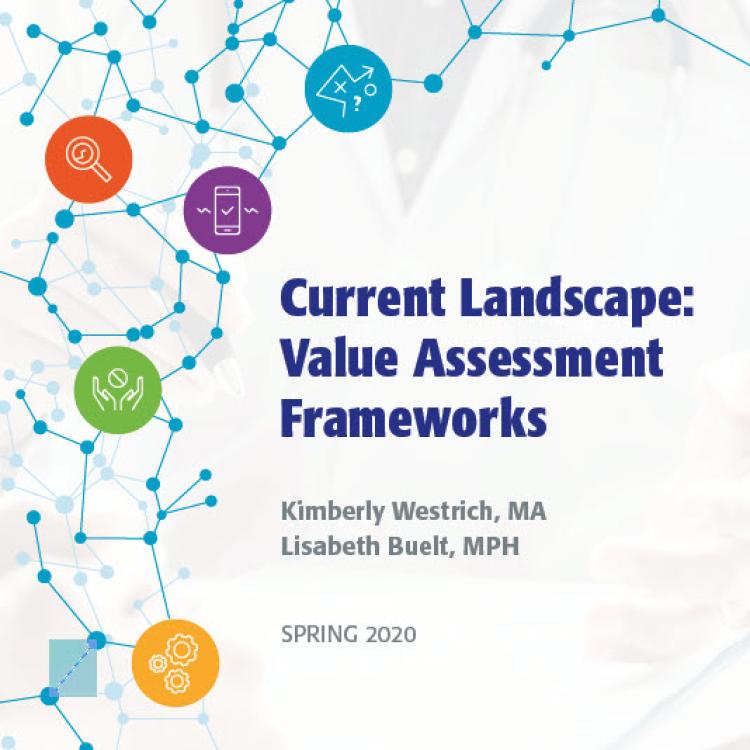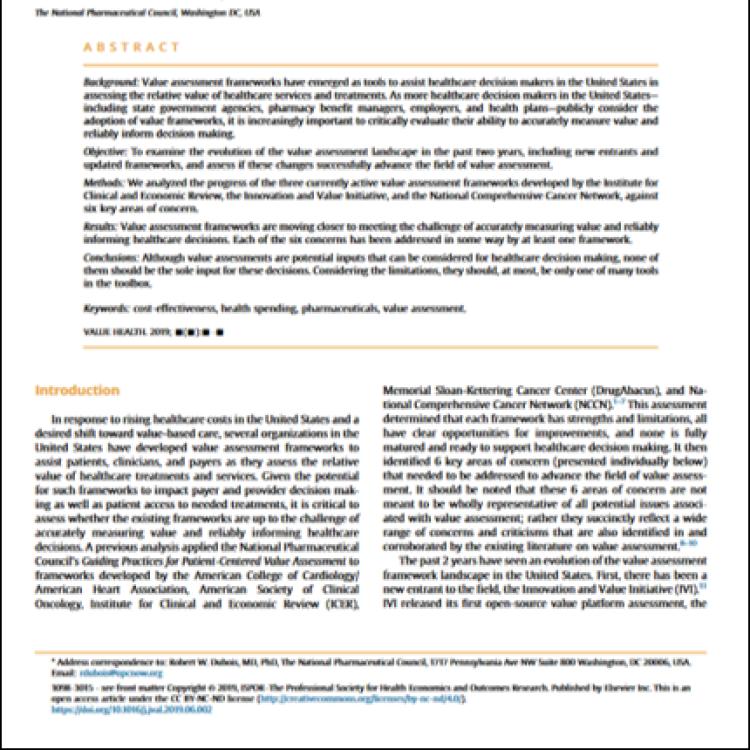Resources
The National Pharmaceutical Council (NPC) is a health policy research organization dedicated to the advancement of good evidence and science, and to fostering an environment in the United States that supports medical innovation.
Filter by:
Topic
Topic
- Accountable Care Organizations
- Alternative Payment Models
- Biopharmaceutical Innovation
- Clinical Pathways
- Elements of Value
- Evidence for Decision Making
- Formulary/Benefit Design
- Good Practices for Evidence
- Health Care Quality Measures
- Health Spending
- Health Spend Management
- High-Deductible Health Plans
- Impact on Outcome & Spending
- Individual Treatment Effects & Personalized Access
- IRA Implementation
- Pandemic Response
- Patient Cost Sharing
- Paying for Cures
- Pharmacy Benefit Managers (PBMs)
- Policy & Regulatory Barriers
- Real-World Data
- Real-World Evidence
- Regulatory Barriers & Challenges
- Understanding Health Spending
- Utilization Management & Step Therapy
- Value-Based Contracts
- Value-Based Insurance Design
- Value Assessment
- Value Assessment Frameworks
- Value Assessment Methods
Resource Type
Audience
Display Only
Showing 266 Results
Stakeholders Find Step Therapy Should Be Evidence-Based, Flexible and Transparent: Assessing Appropriateness Using a Consensus Approach
Stakeholders disagree on when step therapy is appropriate, but agree on a set of criteria about how to develop, implement, communicate, safeguard and evaluate step therapy protocols.
Online Tools to Synthesize Real-World Evidence of Comparative Effectiveness Research to Enhance Formulary Decision Making
This JMCP study describes and compares the features and characteristics of five tools to evaluate real-world evidence studies and adds clarity on what the tools provide.
Assessing Consumer and Employer Willingness to Pay for New Medical Technologies
This study examines whether health care consumers and large employers would be willing to continue to pay for new medical technologies associated with significant improvements in patient health…
Multi-Criteria Decision Analysis: Can It Help Make Value Assessment More Patient Centered?
This white paper identifies good practices and key considerations for integrating the patient voice into patient-centered multi-criteria decision analysis.
Improving Patient-reported Measures in Oncology: A Call to Action
This study explores the current landscape of oncology patient-reported measures (PRMs), which are tools that capture patients’ voices related to their care experience and outcomes.
Improving Transparency to Build Trust in Real-World Secondary Data Studies for Hypothesis Testing—Why, What, and How Recommendations and a Roadmap from the Real-World Evidence Transparency Initiative
A position paper by the RWE Transparency Initiative describes a plan for improving the transparency of the research process and making registration of real-world evidence study methods easier…
Do Patient Preferences Align with Value Frameworks? A Discrete-Choice Experiment of Patients with Breast Cancer
The study assessed patient preferences for aspects of breast-cancer treatments to evaluate the usual assumptions in scoring rubrics for value frameworks.
Underestimating the Value of an Intervention – The Case for Including Productivity in Value Assessments and Formulary Design
Research shows that including non-health care costs like productivity in value assessment frameworks can change the value assessment of interventions, impact on coverage decisions and subsequent…
Are Value-based Arrangements the Answer We’ve Been Waiting for?
This NPC study explored the use of value-based arrangements as a mechanism for cost containment in the United States, noting the strengths and limitations of these tools.
Barriers and Solutions to the Inclusion of Broader Benefits in Biopharmaceutical Value Assessments
This study evaluated how institutional barriers prevent the inclusion of broader individual and societal benefits associated with new health care innovations from being considered when assessing the…
Little Consistency in Evidence Cited by Commercial Health Plans for Specialty Drug Coverage
Evidence cited by payers in coverage decisions for specialty medicines varies significantly, with health plans only citing the same study in 15% of health plan coverage policies for a given drug and…
Current Landscape: Value Assessment Frameworks
This report analyzed seven existing U.S. value assessment frameworks, comparing and contrasting the strengths and limitations associated with each framework.
As Value Assessments Evolve, Are They Ready for Prime Time?
This peer-reviewed study examined the evolution of the value assessment landscape in the United States.
U.S. Care Pathways: Continued Focus on Oncology and Outstanding Challenges
A peer-reviewed study assessed changes in development, implementation, and evaluation of care pathways, and reviewed the latest evidence on integration of pathways with value-based care initiatives…
Uptake and Federal Budgetary Impact of Allowing Health Savings Account-eligible High Deductible Health Plans to Cover Chronic Disease Drugs and Services Pre-deductible
This report examines the net federal budgetary impact allowing Health Savings Account-eligible HDHPs to expand pre-deductible coverage to include chronic disease services.
National Pharmaceutical Council 2018 Annual Report
2018 marked NPC’s 65th anniversary as a leader in health research and policy.
Improving Patient-reported Measures in Oncology
This is a landscape analysis of available patient-reported measures and patient-reported performance measures in oncology and offers recommendations for filling gaps in measures and removing barriers…
Value-Based Agreements May Be More Prevalent Than Assumed
Research published in AJMC shows that value-based agreements (VBAs) between U.S. payers and biopharmaceutical manufacturers may be more prevalent than originally thought.
Patient-Community Perspectives on Real-World Evidence: Enhancing Engagement, Understanding, and Trust
Researchers found that while most patient organizations were initially unaware of real-world evidence (RWE) and its actual or potential uses, they recognized the ability of RWE to provide relevant…



